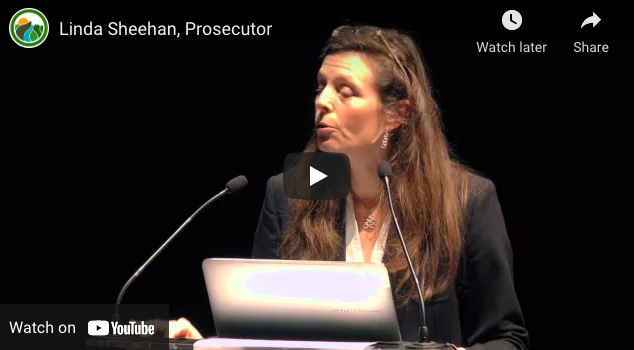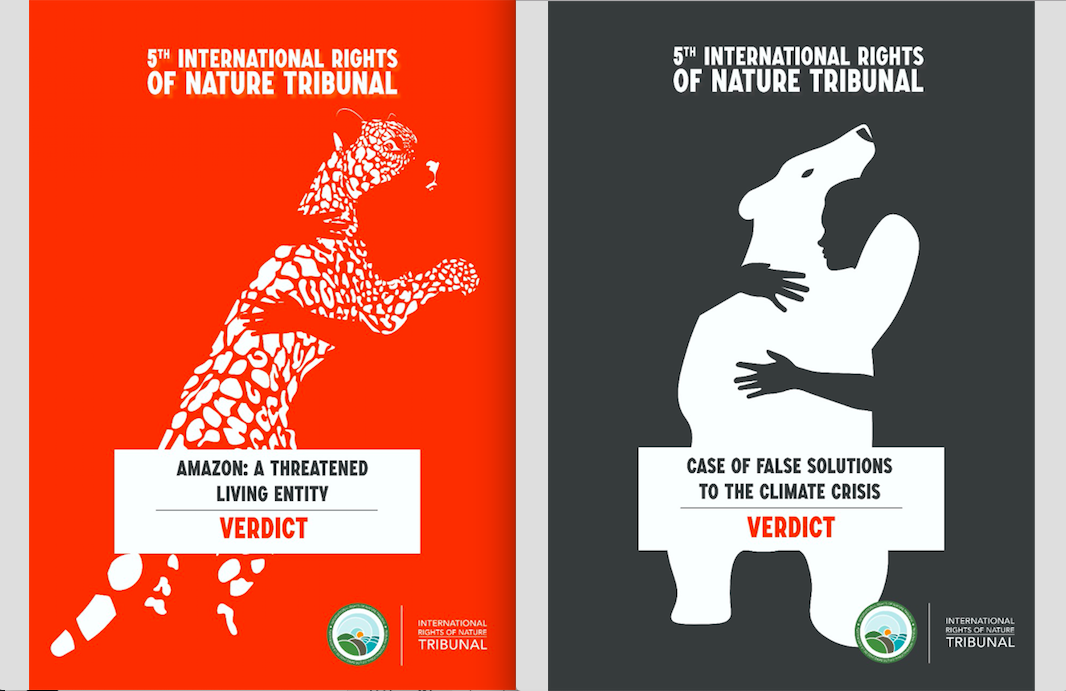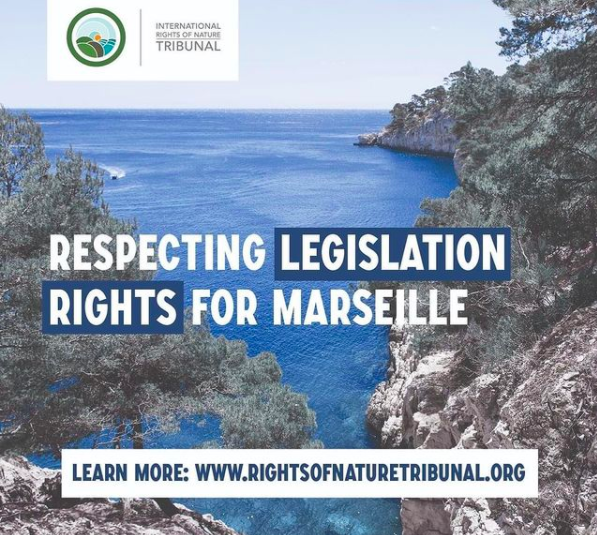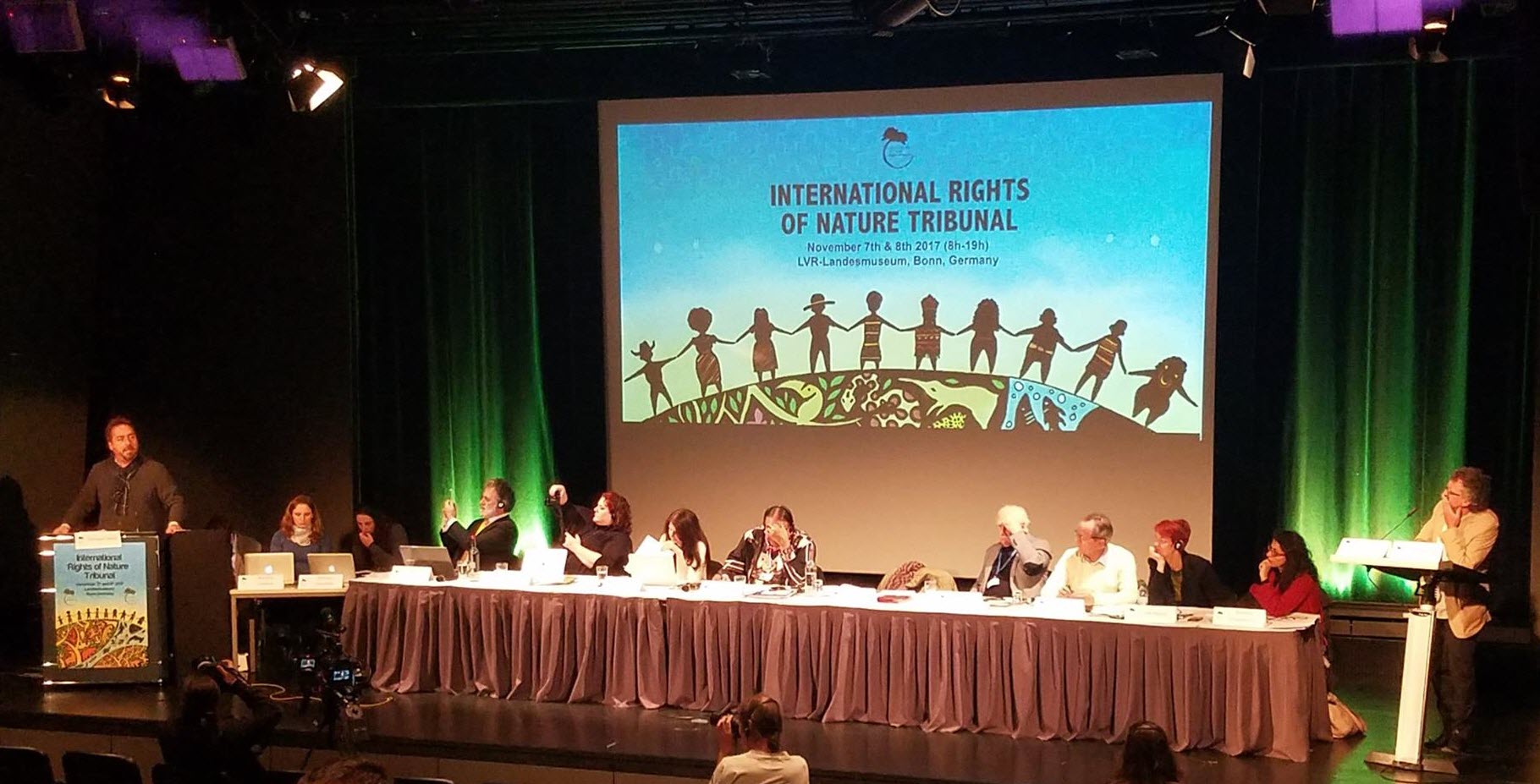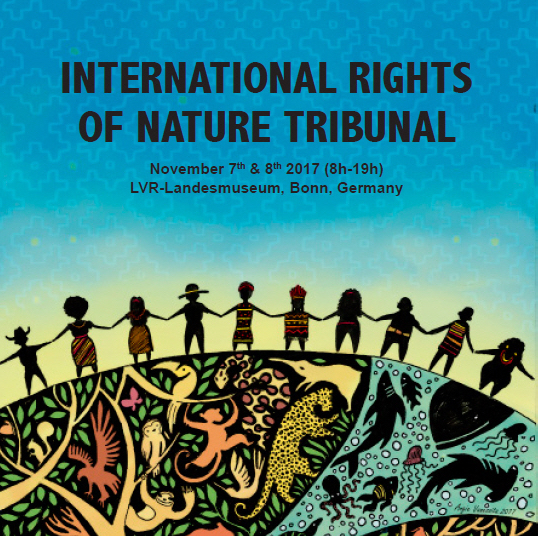International Rights on Nature Tribunal
Paris, France December 5, 2015
“As we heard this morning, we will not bargain for the destruction of Mother Earth. We must insist on laws that recognize the inherent rights of nature. Any laws or conventions that aim for less must be rejected.” Linda Sheehan, Co-Prosecutor on behalf of Earth.
Co-Prosecutor Linda Sheehan’s Closing Remarks
Esteemed 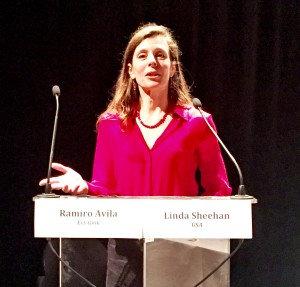 members of the Tribunal:
members of the Tribunal:
We are convened here in Paris in the company of national leaders from around the world, who are meeting to talk about climate change, the gravest threat to the species and ecosystems of the Earth in our human history.
After the compelling testimony about fracking and mega-dams this morning, I spent some time reviewing the current version of the Climate Change Convention, which the United Nations just released. I looked for any discussion at all of the severe injuries to the Earth we heard about this morning, harms that also are both directly and indirectly driving climate change. What did I find?
What I found was much vague language about reducing greenhouse gas emissions. What I did not find is any reference to holding ourselves accountable to our responsibilities to the Earth. I found no reference, for example, to enforcement. Indeed, the one mention of anything being “legally binding” is still in brackets.
There is not one word in the Convention about dams, or water, or fossil fuels, or fracking, or even oil. The only paragraph that mentions the Earth herself – the only one – is also the only paragraph that mentions the rights of indigenous peoples. That is the same paragraph that some nations are now trying to take out. Even if that paragraph were left in, it is part of the Preamble, and is not included in the main body of the Convention.
Ladies and gentlemen of the Tribunal – I put before you that the cases of fracking and mega dams we heard represent ongoing and serious violations of the Right of Mother Earth. I urge you to condemn these violations and call for accountability and justice for nature. I also note that you heard compelling evidence on violations of human rights and the rights of indigenous peoples, which go hand in hand with the violations of nature’s rights.
More broadly, I urge you to be mindful as well of the discussions going on now to determine our climate future. The Convention draft today ignores the causes of climate change like fracking and mega-dams. It also refuses to hold governments and people accountable for specific actions; fails to address violations of the rights of nature, people and especially indigenous peoples; and fails to lead us to climate health.
Because of these fatal flaws, I put to you that the Convention before us is not only inadequate, it is illegal. It would violate adopted declarations and laws regarding human rights and the rights of indigenous peoples. And while the Universal Declaration of the Rights of Mother Earth has yet to be adopted, the draft Climate Convention already violates both the rule of law, and the laws of nature. I will explain these two points.
First, the Rule of Law means that no one is above the law. It is a way of governing ourselves to create harmonious societies. The Universal Declaration of Human Rights says the rule of law is “essential” to the protection of human rights and peace. But as Thomas Berry has said, the “universe is the primary lawgiver.” We are part of the Earth and universe. Our laws cannot place us above the Earth or any of her beings. That approach violates the rule of law, and is the path away from peace and harmonious life.
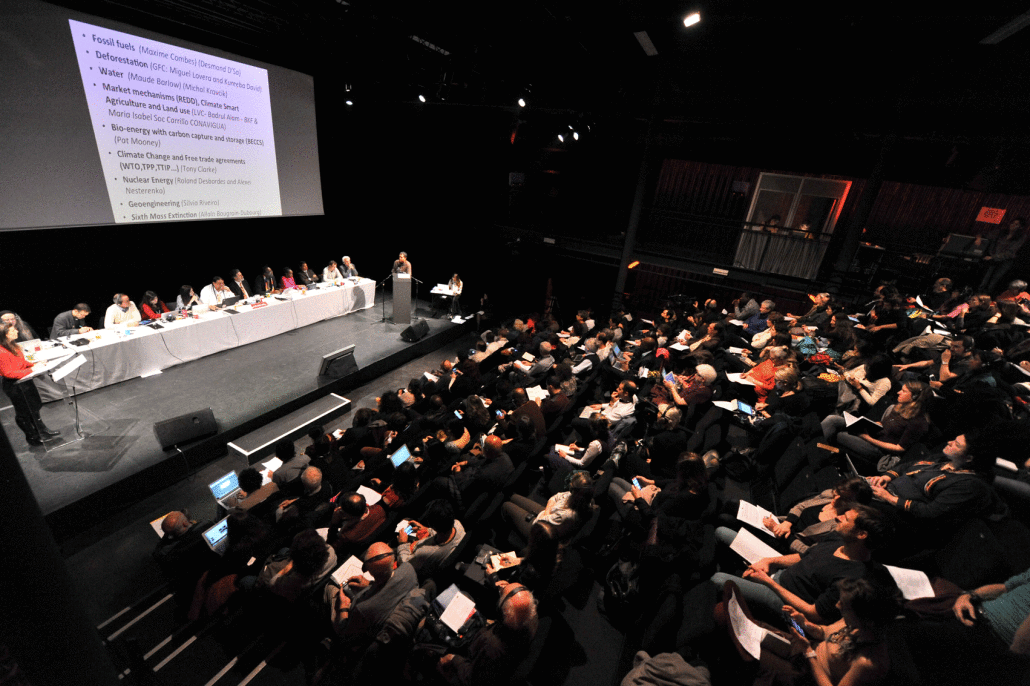
The current Climate Convention being negotiated here in Paris violates the Rule of Law by treating the Earth as an afterthought. The current draft mentions the Earth only once, and that is only in the Preamble. So, are we treating something as above the law? The Climate Convention tells us the answer to this question. The Convention mentions economics and the economic system 49 times, compared with once for the Earth. The Convention’s focus is not on creating law to benefit the Earth. Its focus is on contorting the law to benefit the same economic system that is destroying the Earth.
In adopting this deeply flawed focus, the Convention violates the laws of nature. The nations negotiating on our behalf imagine that we can have infinite economic growth on finite planet. That is the mythology the Convention serves. This mythology pretends the natural world is a dead resource, merely an element of commerce and trade. It seems strange that I must say this, but we cannot live on a dead world. Moreover, we are not human on a degraded world; we are less than human. We must reject that impoverished future.
We heard today from indigenous Amazon leaders that they can see what is coming if we do not raise our voices; if we do not act. Speaking and acting for the Earth is also our responsibility under the Universal Declaration of the Rights of Mother Earth.
Indigenous leaders further called for laws to protect nature from the continued onslaught. These laws cannot be like the Convention draft in discussion. As we heard this morning, we will not bargain for the destruction of Mother Earth. We must insist on laws that recognize the inherent rights of nature. Any laws or conventions that aim for less must be rejected.
In summary, we hear often that we need system change, not climate change. I put to you, ladies and gentlemen, that system change is the Tribunal’s primary charge. Energy sources, or food systems, or a climate convention focused on our destructive economic system violate human rights, violate the rights of indigenous peoples, and violate the rights of nature. These are fundamental rights, and cannot be balanced against so-called rights of fictitious entities.
It is your responsibility to seek solutions consistent with fundamental rights, and this responsibility requires you to push for system change. You must call for actions and laws that recognize the rights of the Earth and by extension, the rights of all her creatures, including but not limited to humans. I urge you to reject fracking and mega-dams, and to call for solutions that are in harmony with and respect the laws of nature.
Thank you.
# # #
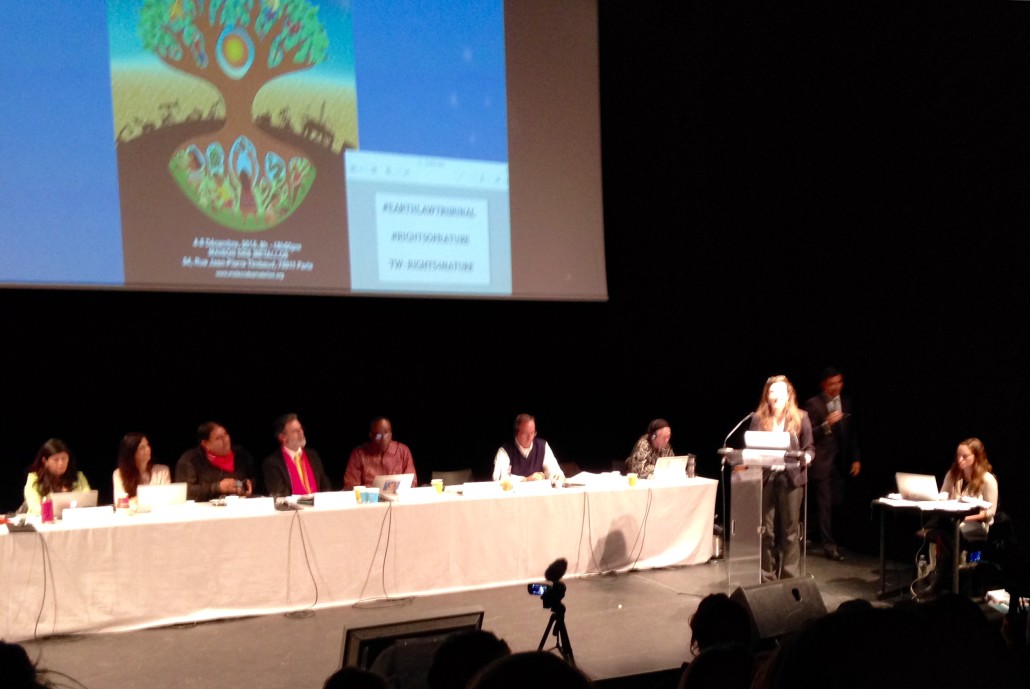
Linda Sheehan was Co-Prosecutor on behalf of the Earth for the International Rights of Nature Tribunal in Paris, France December 4-5, 2015. Ms Sheehan served as Prosecutor for the Bay Area Rights of Nature Alliance Tribunal addressing Fossil Fuels and Chevron case in 2014. Ms Sheehan is Executive Director of Earth Law Center, San Francisco Bay Area, California, USA where she advocates for recognition of nature’s rights in law. She brings 20 years of law and policy experience to ELC, including numerous successes in enforcing and funding environmental laws. For her efforts in “fight[ing] pollution of the Pacific and the streams and rivers that flow into it,” Linda was recognized as a “California Coastal Hero.” Linda is a member of the Commission on Environmental Law in the International Union for Conservation of Nature (IUCN), and teaches Earth Law as Summer Faculty at Vermont Law School. She is a contributing author to Fighting for our Shared Future: Protecting both Human Rights and Nature’s Rights (released in conjunction with Paris COP 21) Exploring Wild Law: The Philosophy of Earth Jurisprudence (Wakefield Press 2011), Rule of Law for Nature (Cambridge University Press 2013), and Wild Law in Practice (Routledge 2014).
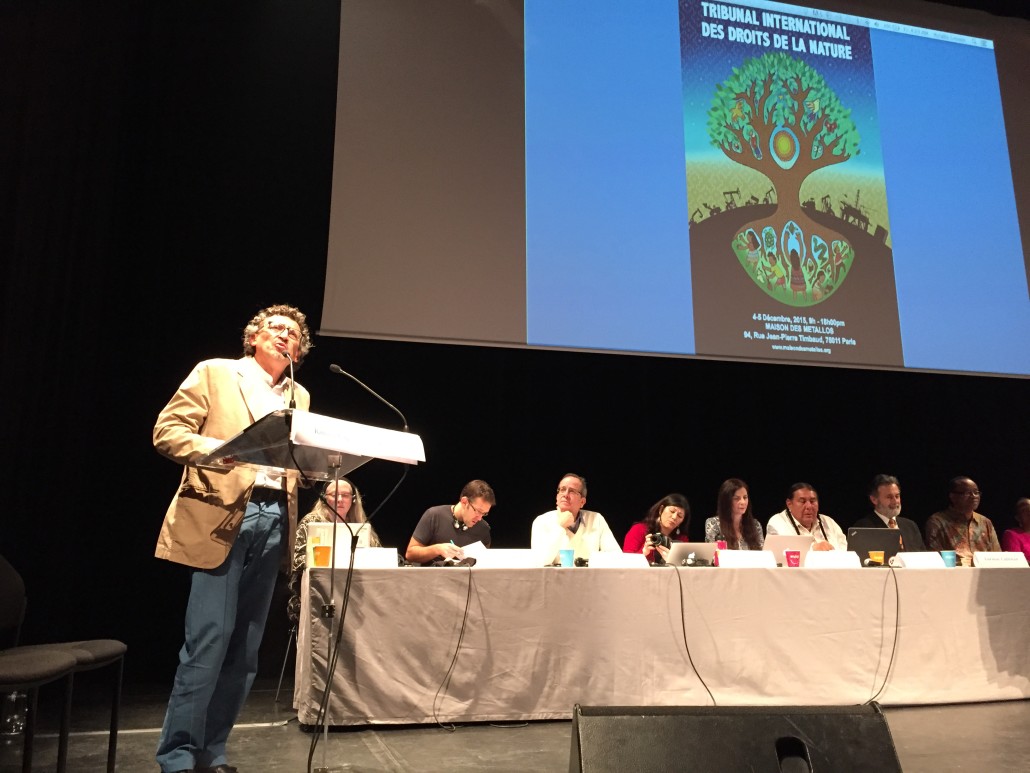
Ramiro Avila, Law Professor at Universidad Andina Simón Bolivar Quito, Ecuador also served as Co-Prosecutor. Ramiro served as Prosecutor for the Earth at the inaugural International Rights of Nature Tribunal in Quito, Ecuador and the International Tribunal during COP20 in Lima, Peru as well as for the Yasunii-ITT regional hearings in Quito during 2014. Ramiro is Lawyer and Doctor of Jurisprudence, Catholic University of Ecuador, Quito, Master in Law, Columbia Law School, New York. Masters and Ph.D. candidate in Sociology of Law, University of the Basque Country.
View Paris Judges’ Statements.
Tribunal Video Credits: A special thank you to Panasonic; 2nd Side Adventures, LLC; Diana Weynand, Producer, Supervising Editor; Clément Guerra, Camera, Sophie Guerra, Sound, and Editors: Sean Lea, Sachie Masuda, Rebecca Ryden and Citizens’ Voice at the Paris Climate Talks.
